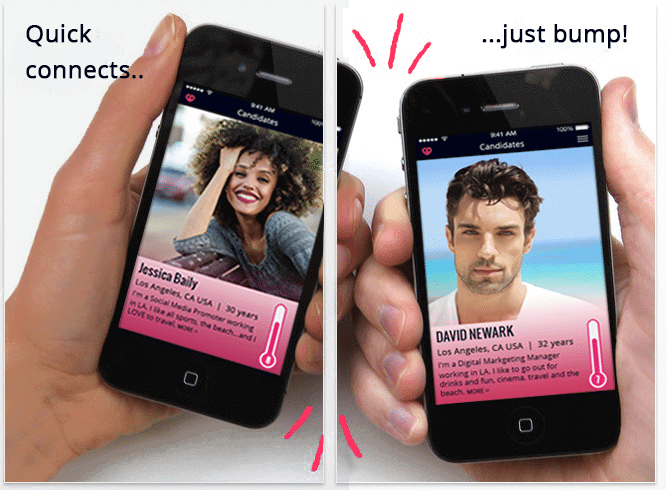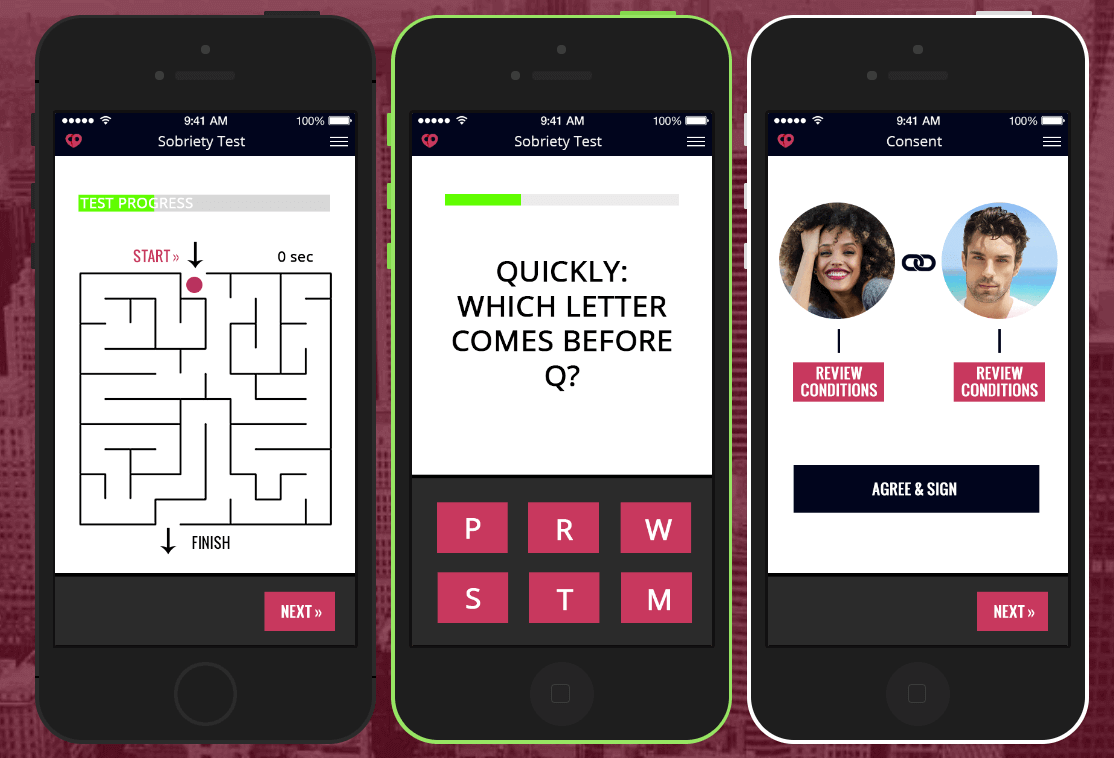Loly: ‘Orgasmic Compatibility’ App Reveals Troubling View of Consent
Geolocation dating app claims to free users from tiresome swiping in favor of AI-powered matchmaking.

Other dating apps provide too many options and too little success
Stating that applications such as Tinder, Bumble, and Hinge provide too many options with reduced quality of interaction, the dating app Loly, soon to be available on iOS and Android, aims to “disrupt the online dating industry.”
Important to note: unlike its competitors, Loly appears to focus on heterosexual relationships, with no mention of the LGBT community on its website or in its released white paper.
Loly uses exciting AI for matching sexual compatibility
Using artificial intelligence, Loly removes human intervention from the equation and instead relies on a patent-pending Heat Index to take control.
The app uses machine learning to pick up on traits and find hidden potential areas of compatibility and conflict between users, generating a recommendation for suitable partners.
After connecting, users can then confirm each other’s identities through the in-built video call feature, allowing potential partners to ensure that they each match their profile pictures.
Loly also hides each user’s mobile phone number for safety and privacy. This face-to-face interaction aims to provide greater potential for long-term relationships with more successful matches.
Loly is built on the Ethereum blockchain for maximum security
The app was built on the Ethereum blockchain, which was chosen for maximizing the privacy of the users, particularly due to the extremely sensitive nature of the data collected.
All data are then encrypted and stored separately, meaning that the sexual preferences and personal information of users cannot be connected. However, this information can be shared with law enforcement when necessary, which is an important aspect of the consent section of the app.
Ethereum also offers an identification system for users to confirm their identities and prove they are not bots, which are known to populate rival dating apps—a factor that sets Loly apart from its competitors.
Loly aims to prioritize consent but is it oversimplified?
When using Loly to meet partners for sexual encounters, users must first confirm they consent by selecting the option on the app and at the end of the exchange, they must again confirm that they consented.
If both users choose to use this option, the app can listen in during the sexual encounter and will respond to the use of safewords. If triggered through voicing pre-registered safewords, the app will initially place a fake call from the app to the user’s mobile phone.
If there is no response on the app, the police will be automatically contacted and a recording of the exchange made available for law enforcement.
The practicality of this app response is perhaps questionable. It is likely that some users would not initiate this feature out of concern for having their sexual exchange recorded, which would seem like an invasion of privacy.
Although all data collected by Loly is safety encrypted and stored separately from identifiable information, it is possible that some users would not feel this is secure enough.
Furthermore, Loly views consent as a one-way street: once the users confirm consent on either end of the encounter, there is no space for re-evaluating the experience and there can also be concerns over coercion during the process of completing the consent questions.
Loly presents consent as a tick-box exercise instead of active communication and agreement between two or more parties.
Loly will test your sobriety to check you are able to consent

Another feature of the Loly app is the optional Sobriety Test. This can be initiated to reduce encounters when intoxicated, ensuring that your potential partner is sober and thus can consent.
These tests can include a maze puzzle to be completed on the app, and also questions about the alphabet. From initial appearances, these tests could perhaps be too simple to guarantee to any degree that the user is sober beyond what would already be possible from speaking to the person and listening for key indicators that they are under the influence of alcohol or drugs.
CEO Adryenn Ashley discusses Loly in the context of #MeToo
Whilst discussing Loly on Richard Jacobs’ Podcast, Future Tech: Almost Here, Round-the-Corner Future Technology, the founder and CEO, Adryenn Ashley, discussed one of the main issues with dating today.
She highlighted how the app was developed on the back of the #MeToo movement, also mentioning how research found that when it comes to online dating, women are most afraid of being killed whereas men are concerned that their date will be fatter than in their pictures.
However, despite the feminist inspiration for the app, the CEO then described how the app will be useful for avoiding false rape claims.
She described an epidemic of false allegations made by women who were upset at being rejected by men on dates and then go on to accuse them of rape. She believes that Loly will be key to avoiding this situation, as consent can then be “proven” through the app.
The issue of fake allegations she argues is due to a psychological issue in women as society is “programming women to be victims” instead of “leaders,” which then results in exaggerated claims.
This victim-blaming argument is concerning coming from the founder of an app that aims to revolutionize consent. Instead, it seems to pull from outdated and inaccurate views about women and places the most significance on men being falsely accused.
Figures from the US Bureau of Justice Statistics indicate that only 35% of all sexual assaults are reported. According to the UK Crown Prosecution Service, false allegations make up just 0.62% of all rape cases.
In fact, research has found that men are more likely to be sexually assaulted than to be falsely accused of sexual assault.
Loly CEO wants women to reconsider their expectations of men
In the discussion with Richard Jacobs, Adryenn Ashley also claimed that part of the failure of dating in the present day is the unreasonable expectations from women. She instead recommends dating men who work in fields such as engineering, claiming that they are programmed to want to improve.
This is where Loly steps in, to ensure that despite preconceived ideas about ideal employment, looks or personality traits for potential partners, the app will find the calculated best match.
Ashley argues that altering expectations for sexual encounters is important, as the first time together is unlikely to be good but over time it will drastically improve.
This presents an unusual disregard for the sexual pleasure of women and presents sex as a chore to endure, instead of a shared experience — a far cry from the women-centered, sex-positive approach initially promised by the app.
Loly may be problematic but it shows that there is an exciting future ahead for dating apps and safety
Overall, Loly demonstrates that exciting new technology does not always match up with inclusive and appropriate understandings of consent and sexual pleasure.
It does, however, highlight a future of technological answers to safety concerns that could have huge implications for sexual freedom in the months and years ahead.
Image sources: Loly
Leave a reply
You must be logged in to post a comment.

















